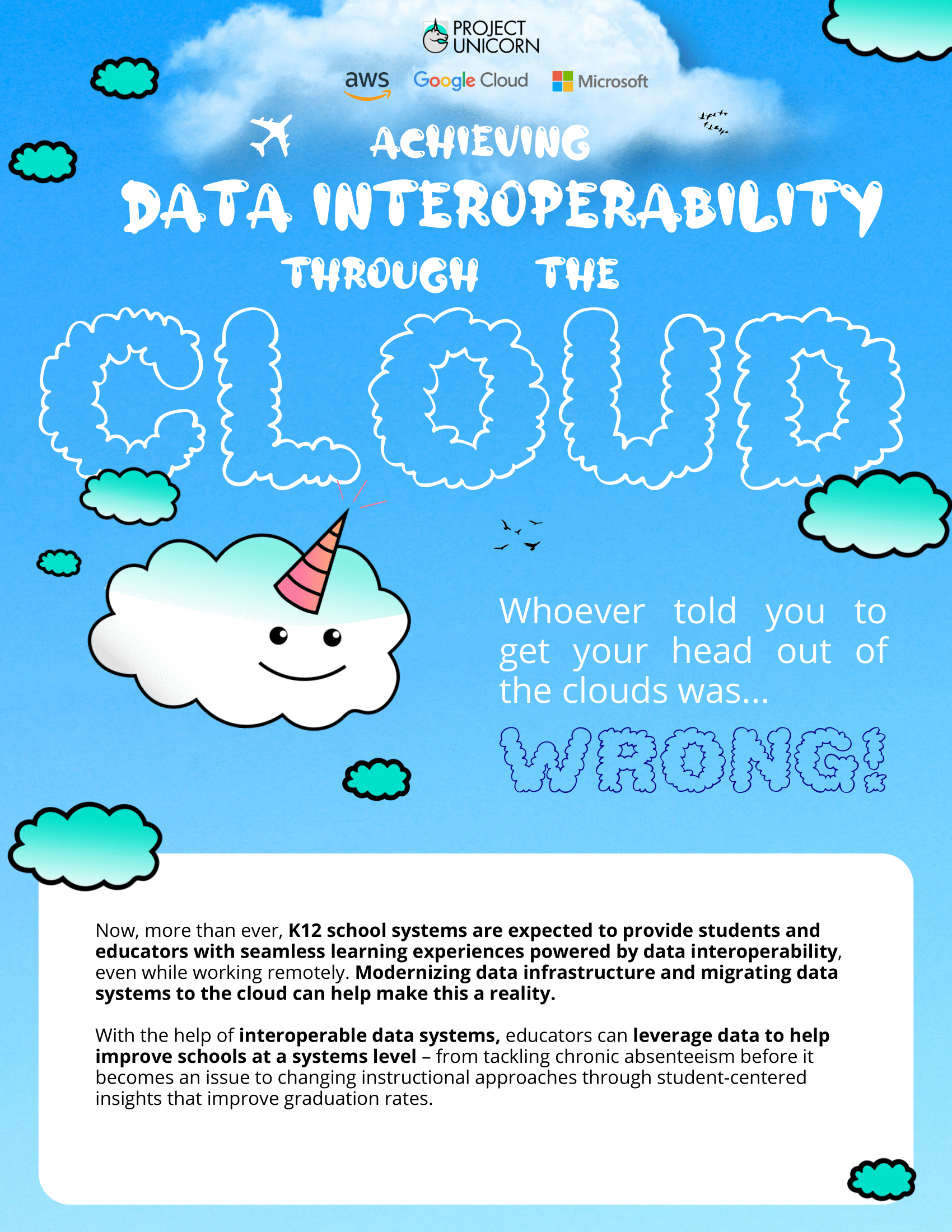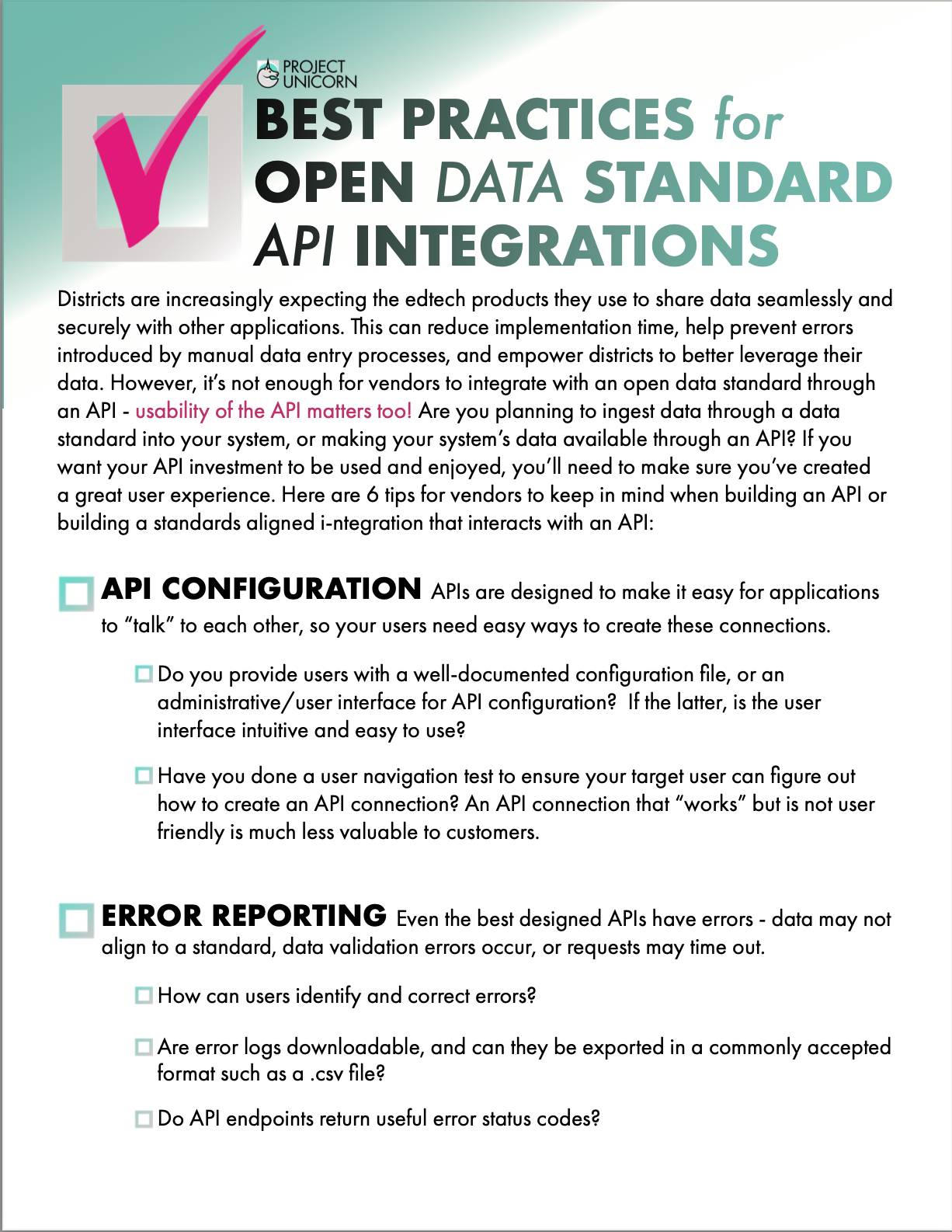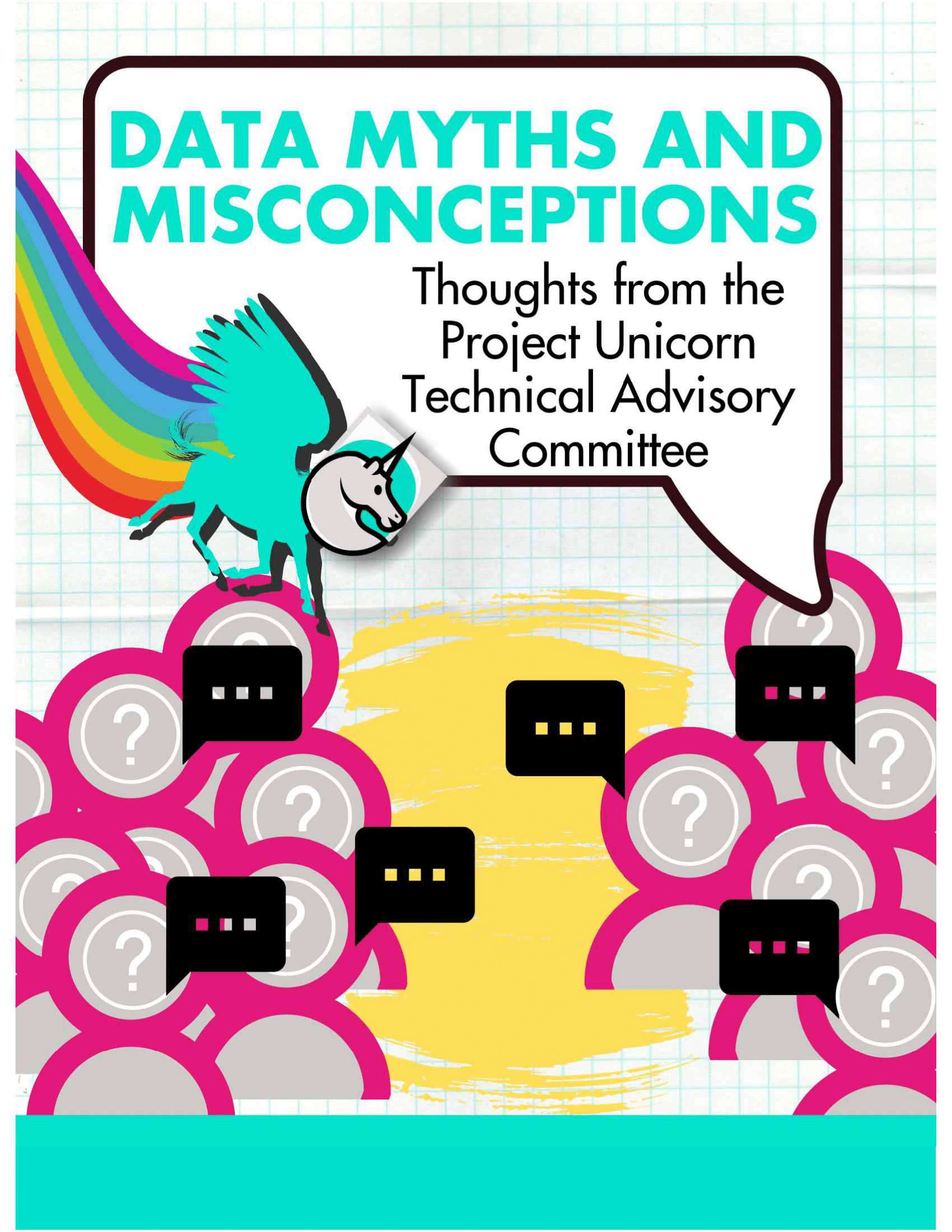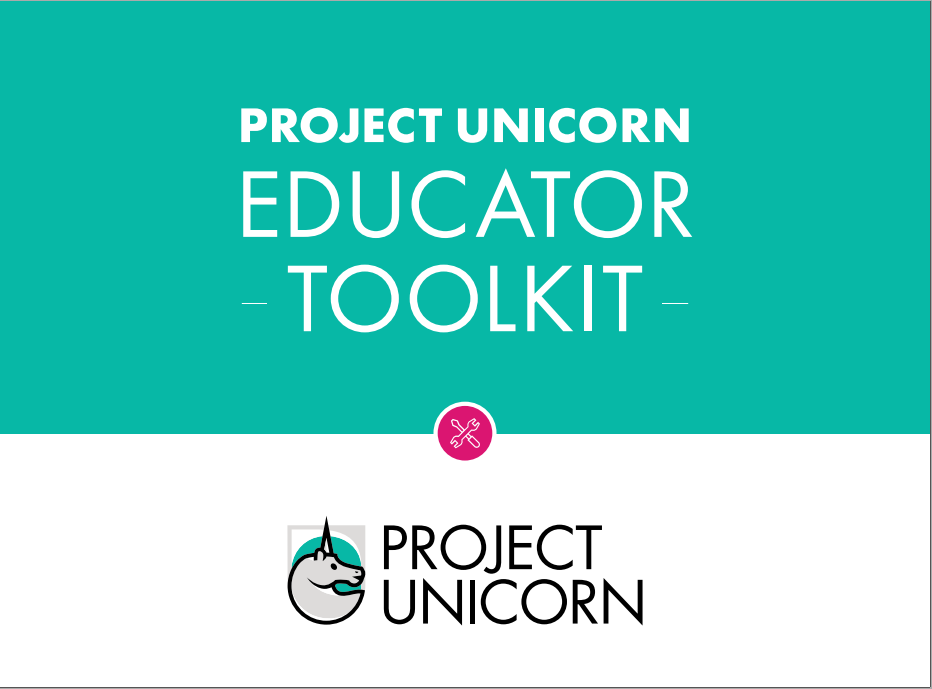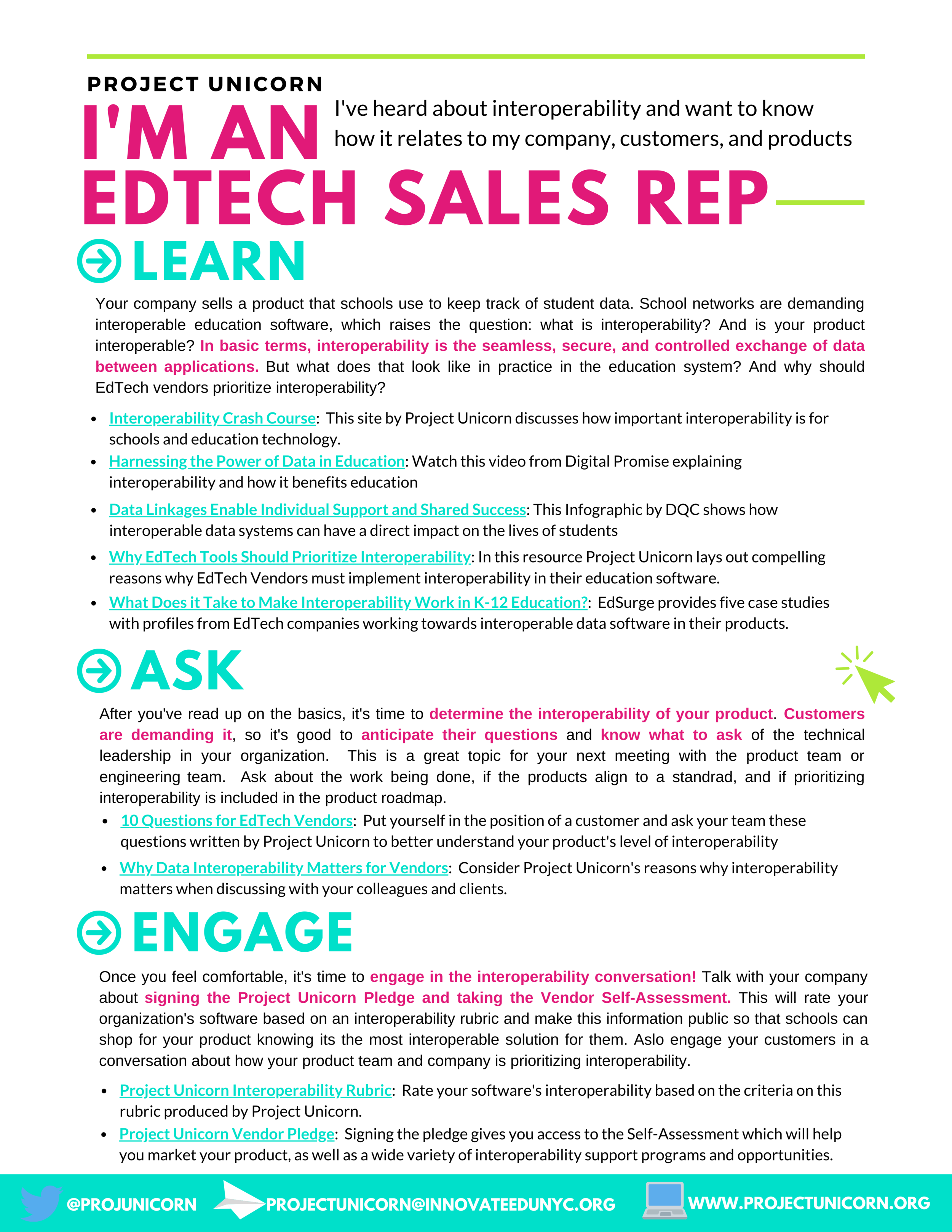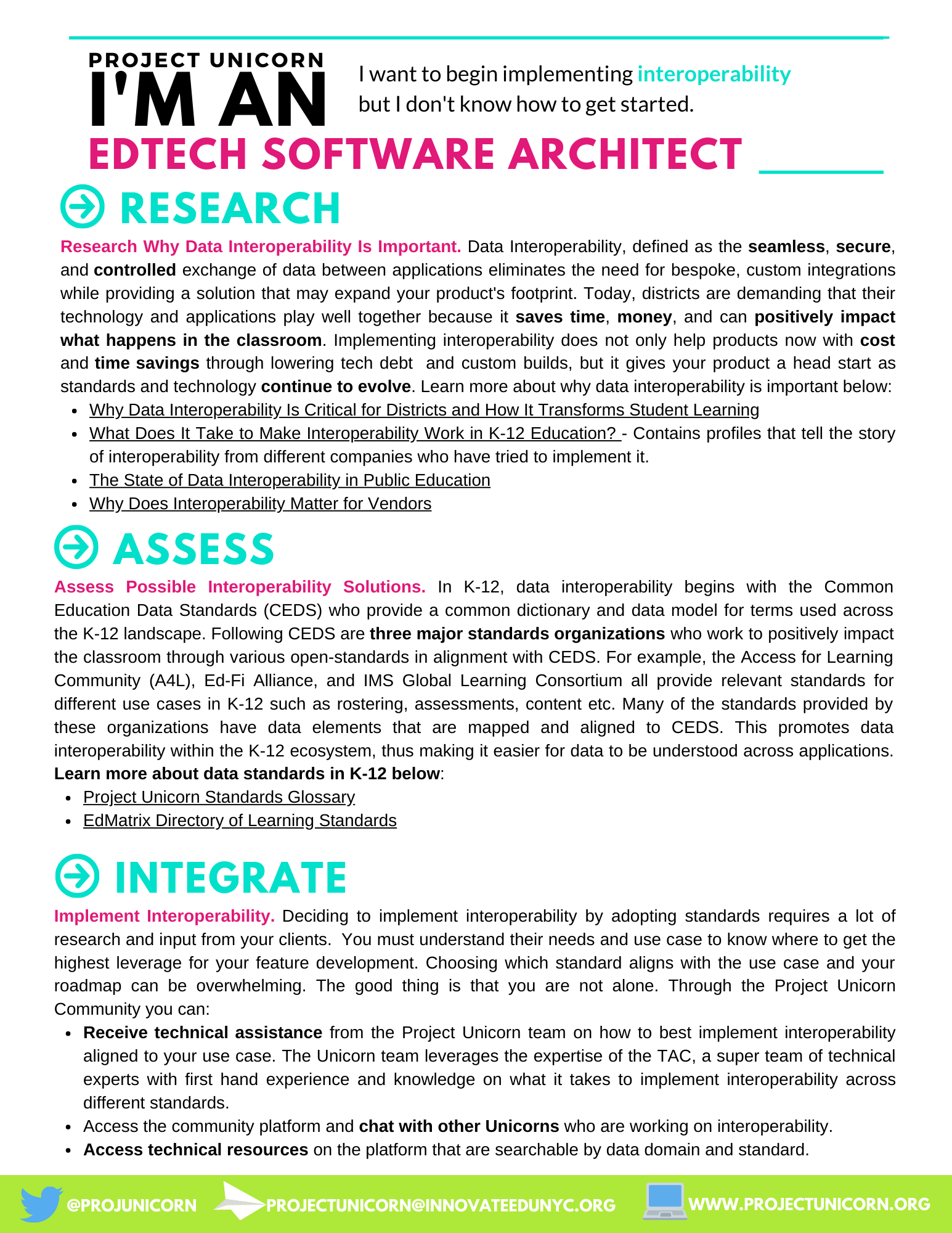This short guide was developed to help school system leaders and edtech service providers engage in productive conversations about data interoperability. This guide is meant to be part of a structured dialogue with the intention to solicit feedback and promote candor. Read more below!
Read MoreWhoever told you to get your head out of the clouds was wrong! Now, more than ever, K12 school systems are expected to provide students and educators with seamless learning experiences powered by data interoperability, even while working remotely. Modernizing data infrastructure and migrating data systems to the cloud can help make this a reality.
Read MoreDistricts are increasingly expecting the edtech products they use to share data seamlessly and securely with other applications. This can reduce implementation time, help prevent errors introduced by manual data entry processes, and empower districts to better leverage their data. However, it’s not enough for vendors to integrate with an open data standard through an API - usability of the API matters too! Read more about best practices for open data standard API integrations.
Read MoreThe Project Unicorn Interoperability Certification signals to school systems and districts that an edtech product prioritizes data interoperability. There are four tiered badges available representing levels of interoperability, with tier 4 equaling the highest standard.
Read MoreInteroperability can be your market advantage! Data interoperability is the seamless, secure, and controlled exchange of data between applications through the use of data standards. This allows for the exchange of information in real or near-real-time, allowing school districts to bring together siloed data elements and leverage them in new ways. Aligning to data standards demonstrates visionary leadership, signaling your commitment to helping educators and administrators make the most of their data and positioning your company as a market leader.
Read MoreBeing certified to a data standard signals to customers that your product is truly interoperable. Certification gives buyers the confidence that their educational data will flow seamlessly and securely between their applications. Discover steps to certification for Ed-Fi Alliance, Access 4 Learning Community, and IMS Global here.
Read MoreClarity around how the Ed-Fi Alliance Standards and IMS Global Learning Consortium® Standards can be used in support of educators is a common and increasingly frequent request from the Ed-Fi Community. In many cases, Ed-Fi and IMS Global standards often seek to solve different problems, and therefore a better understanding of the tools and functionality available for various use cases is important to selecting the best solution for a given use case. Each organization’s technologies provide real, and distinct, value to users in their daily lives and work….
Read MoreSigning the Project Unicorn pledge is just the start for EdTech Vendors! Rate the interoperability in your edtech data tool by following the steps below!
Read MoreData interoperability is the seamless, secure, and controlled exchange of data between applications. Interoperability allows schools to bring together siloed data and leverage it in new ways to improve teaching and learning. Implementing interoperable standards allows edtech vendors to link their products to a broader ecosystem and increase product value. Learn more about interoperability and Project Unicorn with this resource!
Read MoreWhen it comes to data interoperability, sometimes it's hard to know what is fact and what is fiction. This resource tackles some of the most common myths and misconceptions about interoperability. Discover the truth with this resource from the Project Unicorn Technical Advisory Committee!
Read MoreNow more than ever, educators are facing both known and unknown challenges to ensure that learning keeps going - no matter what. This toolkit from Project Unicorn provides support for Educators looking for better ways to leverage interoperable technology to support student learning.
Technology is helping schools use student data to unlock insights into a student's learning to boost academic growth and understanding. But when our technology doesn't work well, it can hinder our ability to assess and meet the needs of our students. One way to fix this is by making education technology interoperable. Click here to learn more about how data interoperability advances student success and gives you back your Sundays.
Read MoreFrom improved instruction to data quality and efficiency, interoperability can help schools, states, students, teachers, districts, and families in ways you may not even realize. Read this resource to understand what interoperability is and what it means for groups across the education spectrum, from students to edtech vendors to state teams. See how real classrooms and school teams across the country have used interoperability to help their schools be better.
Read MoreLet’s be honest, interoperability doesn’t sound like a fun word and doesn’t do enough to talk about the magic that it gives us. Give this resource to the biggest skeptic of investing in interoperability to understand how interoperability is part of our everyday lives by going on a theoretical trip to Colorado.
Read MoreClassrooms across the country went dark in a matter of days when COVID-19 spread. For many schools, this meant that learning stopped as educators struggled to get their students' curriculum, learning materials, devices, and more without a digital ecosystem in place that allowed for quick solutions and online learning. In these stories from districts across the country who dealt with the 48-hour transition, learn what struggles and challenges they faced and how having a connected digital ecosystem supported all aspects of that transition, from logins and assessments to equity and inclusion. Read about how they tackled interoperability challenges and worked towards their edtech connectivity goals to create a digital atmosphere to ensure that learning kept going for students.
Read MoreSchools are demanding interoperable technology. If you’re on the non-technical side of things at your company, check out this resource to learn more about what interoperability means, how your company can implement it, and how you can better discuss it with your customers.
Read MoreAre you a software architect or developer looking to learn more about how to implement data interoperability within your tool? Read this resource for the first three steps to help you get started with the tools that can help you along the way.
Read MoreSchools across the country had the herculean task of transitioning to fully digital classrooms, effectively overnight. From the Project Unicorn Technical Advisory Committee, read this resource to see how interoperability standards can support a fully remote classroom through different use-cases. A must-read for tech directors and data teams.
Read MoreWe are excited to announce that the Project Unicorn Community Platform is now open! The Community Platform is a place for Project Unicorn Signatories to access new resources, start a community chat, apply for scholarships, and more.
Read MoreAs local and state governments, businesses, and institutions across the country implement the first phases of reopening after weeks of lockdown, schools are beginning to plan for learning this fall…
Read More











